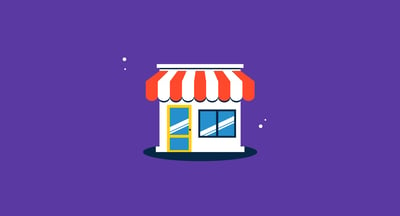April 16, 2020
 by Deana Kovač / April 16, 2020
by Deana Kovač / April 16, 2020
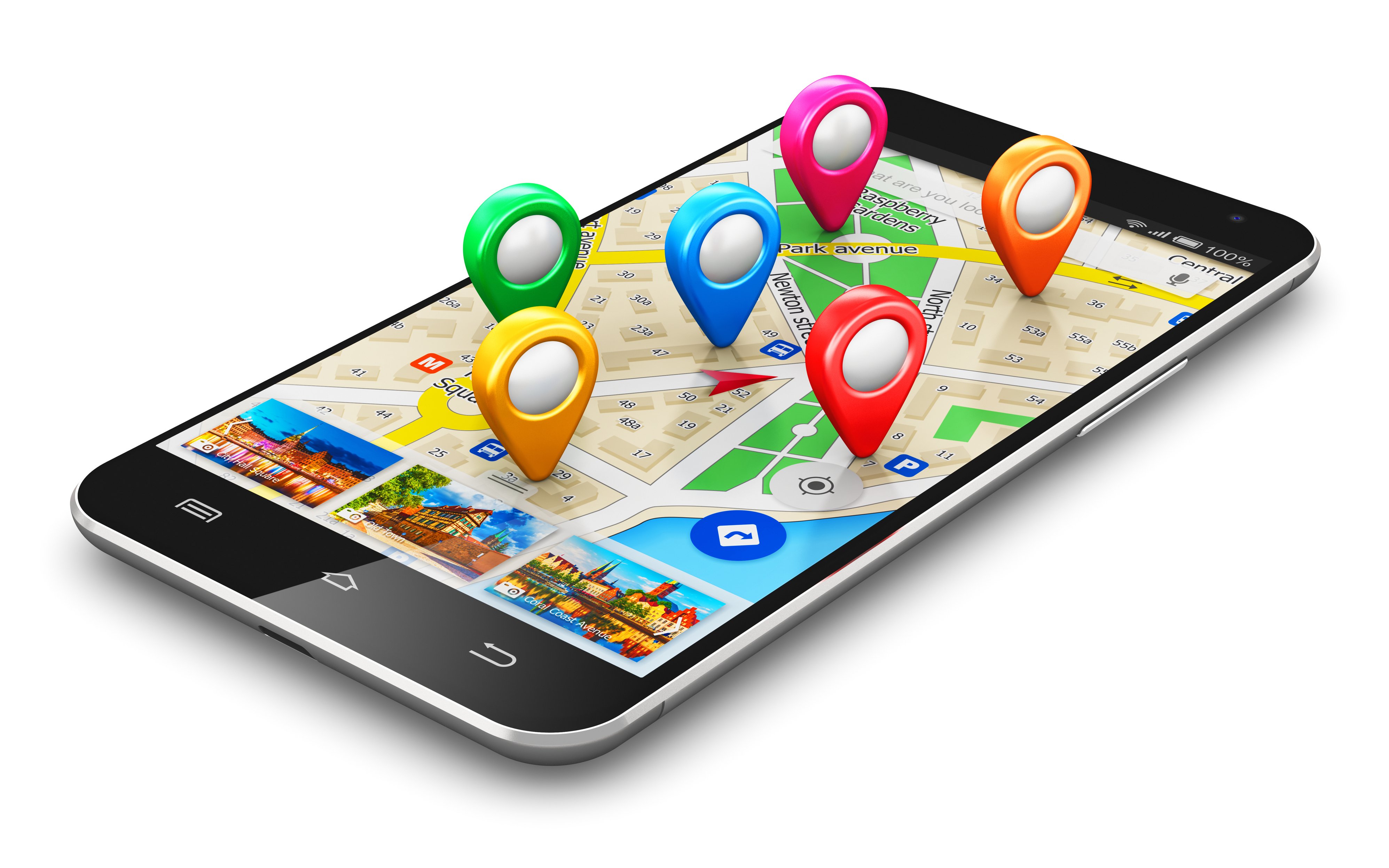
If you've got a small business, you need to start implementing local SEO.
Local SEO is the process of optimizing your website so that it starts to appear in local searches to the right people. For example, a customer could be looking for a dentist in their local area. If you’ve marketed your local business properly, yours might be the first one they see. It’s the same if you sell shoes or deliver food. Your customers pop online and look for you on Google.
It’s really important because more and more customers are looking for businesses online these days. If you haven’t optimized your website for local SEO, you’ll be losing so much potential trade to rivals. In fact, 78% of local searches carried out via mobile lead to offline purchases. Imagine missing out on that?
Anyone who runs a local business should seek to get their business discovered better online. This goes for dentists, lawyers, restaurants, salons, retail stores and more!
The good news is that local SEO isn’t rocket science. Once you’ve implemented a strategy, all you then need to do is keep tweaking things until you appear on the first page of Google.
In this article, we take a look at how to use local SEO to get your business discovered.
Local SEO is a way of marketing your local business online. It puts your store in front of more customers who are looking for the types of products or services you sell.
When a customer pops onto Google, there are really two main types of searches they can perform: informational search or local search.
A local search has more commercial intent than a mere informational search. For example, if a customer is looking to learn how to get rid of toothache themselves, they might type in the following query: “Home remedies for toothache".
That’s an informational search query that has no commercial intent behind it. On the flip side, let’s say the same customer wants a local dentist to fix their tooth for them. As such, they might type this: “Dentists near me".
This query is loaded with commercial intent because we can clearly see that the customer is looking to take some sort of action ASAP. Alternatively, they might specify a location (such as “dentists in Manhattan”), but the intent is the same.
The fact that the intent behind an informational search and a local search is different is what makes local SEO so important to local, small businesses.
Local ranking factors not only send the right signals out to Google so that the search engine will rank you better, they also provide key information to potential customers, thus encouraging them to click. There are a couple of key local SEO ranking factors that all small businesses need to be aware of.
These include:

Let’s take a quick look at some stats that will help to illustrate why local SEO is so important, as well as the patterns and trends that are helping to define the local SEO strategies small businesses need to put in place:
As you just saw, 46% of all Google searches are local-based. And as we pointed out earlier, local searches have more commercial intent than informational searches.
In other words, all businesses that are already online will benefit from local SEO. However, while there are really no limitations to the types of businesses who will benefit, here are some of the ones that stand to gain the most.
SEO can provide you with almost limitless potential customers if you start ranking highly. And because SEO can be a relatively low-cost option, it makes sense for small businesses to invest in it.
SEO also allows you to drive qualified traffic so that you’re only targeting people that are truly interested in what you’ve got. Plus, you can amend your campaigns so that you’re especially targeting people who are ready to buy.
Professions like doctors and dentists benefit a lot from local SEO because, whenever someone is feeling ill or has a toothache, one of the first things they do these days is pop onto Google and type in a query like “dentist near me". The last thing they do is let it linger. They want to get better ASAP!
Also, it really helps if you get specific. Instead of just adding “doctors in New York” to your content, you could add the specific region, as these doctors did:
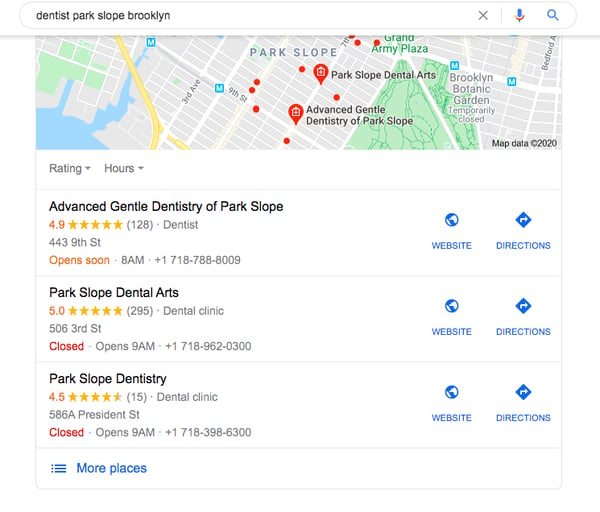
This one seems obvious. Especially when the wedding season comes around, people start using search terms like “best makeup artist near me” more and more.
They will also look for reviews, as well as photos that document a salon’s work. And when they google for positive salon reviews, you ideally want your store to pop up in the search results. This is exactly what can happen if you implement local SEO tactics (see below, where we go through the process of adding your business to directories and citations).
Remember when trying to find a lawyer was super difficult? Not anymore. Local SEO has improved the visibility of small law officers hugely because it has put them on the Google map.
With the right SEO practices in place, a smaller law firm can compete with bigger law firms for search engine real estate. When you combine an optimized website with lots of reviews too, you’re onto a winner.
Non-commercial restaurants and mom and pop stores really benefit from local SEO because they’re able to draw in more customers that might otherwise have missed them. For example, your seafood restaurant might be tucked away in a remote corner of town, out of the way of the busy streets. If people can’t see you there, they will be able to find you on Google if you implement the right practices.
Just picture it: A man feels like seafood tonight and asks his wife if she knows of any good seafood restaurants. She says, “just Google it.” He types in “seafood restaurant near me," and your place shows up along with lots of positive reviews.
Like doctors and dentists, repair shops stand to gain a lot from local SEO because people will always need things fixing. If your car breaks down and you need it to get to work, there’s a very good chance you’ll type something like “local repair shop reviews” to find a good repair shop near you.
Now that you know why you need to implement local SEO tactics, let’s take a look at exactly what you should be doing to ensure that most customers find you online.
To help you attract the right traffic to your site, you need to use the keywords that your customers are using.
It’s highly probable that you’re already using keywords such as “doctors in Brooklyn” (or something similar based on your business and location), but there are other types of keywords you can use, too.
For example, you can mix things up like this:
Here’s a tip: type one of your local keywords into Google and then scroll down to the “searches related to…” section at the bottom. Here, you’ll find a list of related local keywords, per the image below:

These are all related search terms that users are entering into Google to find doctors in Brooklyn. As you can see, you shouldn’t restrict your keywords simply to a specific location. Instead, get creative and add the state, too.
Also, be creative when it comes to your industry keywords. You can use free tools like Google’s Keyword Planner, as well as premium tools like Moz and Ahrefs to help. As you can see in the image above, users aren’t just searching for “doctor in Brooklyn". They’re also using terms such as “family doctor” and “medical doctor".
Whatever your industry is, try to get inside the head of your customers and think about the industry-related search terms they might be using. Here’s another quick example. Let’s say you run a bakery. Industry-related search terms in this instance might include “deserts” and “pastries” and so on.
Your competitors might already be ranking better than you are, so it’s a smart idea to see what keywords they’re using.
The best way to do this is via tools, such as Moz’s Keyword Explorer. This tool shows you the top-ranking keywords in a particular niche, and it displays their monthly search volume and difficulty. It also shows you how you’re doing vs a competitor. If they’re using keywords you aren’t (and ranking well for them), you can reverse engineer what they’re doing.
Another tool you can use is Google AdWords Keyword Planner. This is completely free; all you need is an AdWords account. If you’ve got an account, log in and select “search for new keyword and ad group ideas". Then, enter the URL of a competitor’s site and see what keyword ideas come up.
Google My Business quite literally puts your business on the digital map. Once your business is listed, it will show up on Google Maps and Google search results when users type in, for example, “vegan restaurants near me” – like this:
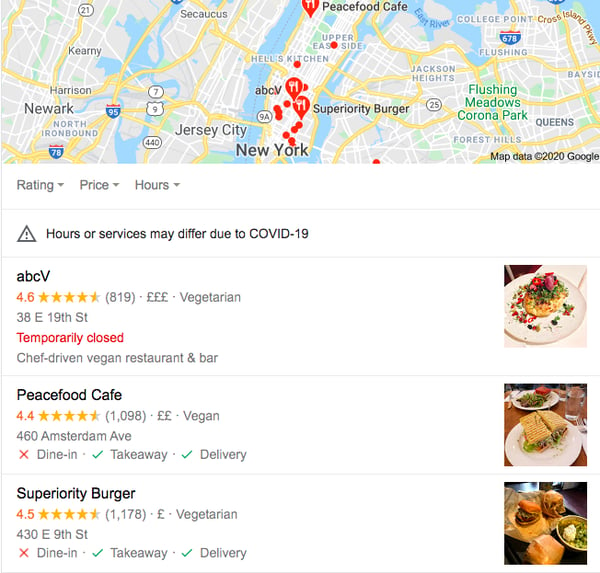
When it comes to local SEO, then, getting on Google My Business is super important. It’s really easy to do, too. All you have to do is provide your key contact info, such as the name of your business, as well as your address and telephone number.
You should also enter your opening hours, as these will not only help you rank, they will encourage potential customers to visit your site. Remember, the more helpful information you give out, the better. Once all this is done, Google My Business will ensure that your business appears in local search results.
Directories and citations, such as DirJournal, Yelp and FourSquare, give your business more mentions, and they also collate reviews, which is great for local SEO.
Not all of these directories and citations are guaranteed to list your website, but some will. So it’s a good idea to make a list of a few, apply and then enter all your information correctly so that more people can find you online.
Also, since customers can leave reviews on these sites, it’s a good idea to reply to as many of them as you can, including the negative ones. It just shows people that you care, and it prevents bad reviews from just “sitting there” without a response.
It’s really important that you properly optimize your copy. Keyword research is just one part of the puzzle; you need to make sure you use them properly.
Here are some tips:
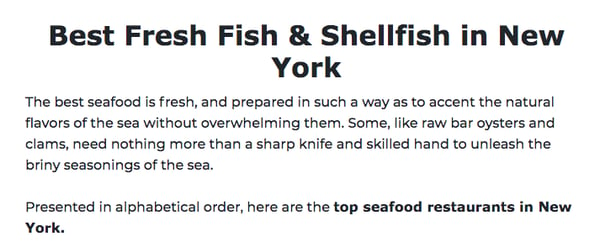

The most important thing you need to do is use a responsive theme when creating your website. When your website is responsively designed, the screen automatically adjusts to the device a person is using. This is really important; as we showed earlier, many customers who carry out local searches do so via their mobile device.
Here are some other things you can do:
Lastly, local content will give you more opportunities to use local-based keywords, and it will help you to rank higher. Plus, useful content could get shared on social media, which will help to drive more traffic to your website.
For example, a farmer’s market could create a blog post all about a fundraiser they’re holding in their local area. That’s local content. Or a small restaurant could create a blog post about dining problems they’re solving in their town.
There are plenty of ideas you can come up with, but the most important thing is that your content is useful to your local community. Make sure to include town/city-specific keywords, and make sure to keep your content conversational and engaging.
Don’t forget to link out to other local businesses when suitable, too. You could let them know you’ve mentioned them in your article. By promoting them, there’s every chance they’ll share your articles.
Local SEO is super important for small businesses and, as we’ve shown, it isn’t all that complicated. If you’ve got a small local store, make sure to implement the tips above to ensure you drive more customers to your website.
Make sure your local business is receiving the most traffic it possibly can with help from top-tier local SEO software solutions. Combined with expertise in SEO, you'll definitely put your business on the map.
Deana is an internet marketing specialist at Point Visible, a digital agency providing custom blogger outreach services. In her free time, she enjoys listening to music and singing karaoke. Also, her day just can’t start without a hot cup of coffee.
Customers are looking for your business online, are you making it easy to find what they need?
 by Stephanie Graham
by Stephanie Graham
A long time ago, Google was faced with a question: how can it surface search results specific...
 by Jamie Pitman
by Jamie Pitman
Marketing locally is very different from reaching a global audience.
 by Tom Kotze
by Tom Kotze
Customers are looking for your business online, are you making it easy to find what they need?
 by Stephanie Graham
by Stephanie Graham
A long time ago, Google was faced with a question: how can it surface search results specific...
 by Jamie Pitman
by Jamie Pitman
